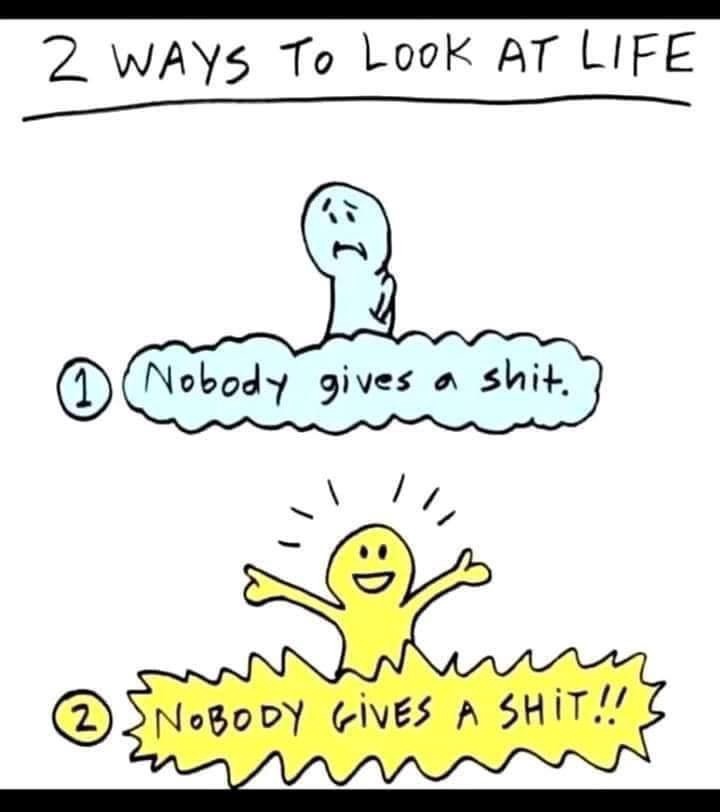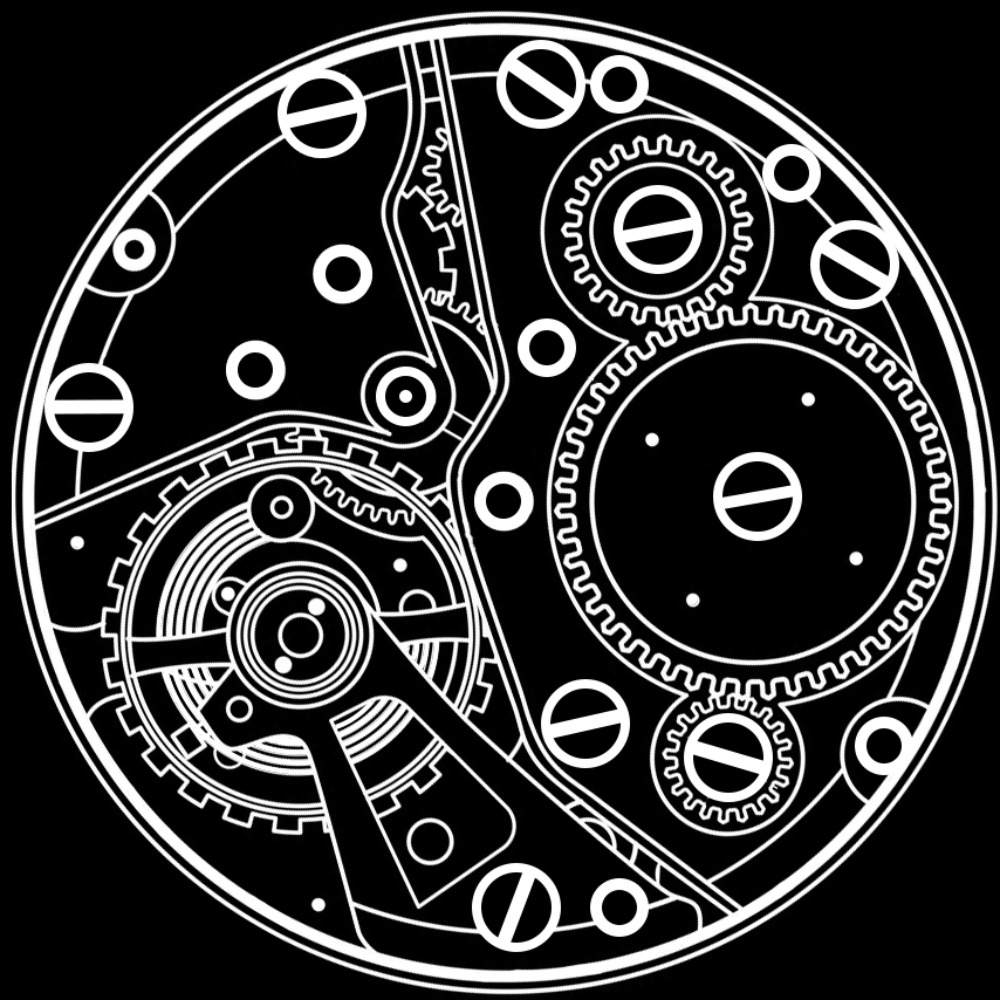Here is an alternative Piped link(s):
https://piped.video/JYqfVE-fykk
Piped is a privacy-respecting open-source alternative frontend to YouTube.
I’m open-source; check me out at GitHub.
deleted by creator
you must hate the towel of babel story in the bible.
It’s here Sunshine. And it’s been the law, for what 50 years now?
So go to the store and buy a 2 liter of your favorite soda pop, 454g of butter, 2 1/4kilos of potatoes, a half kilo of tomatoes, and a 750ml bottle of whisk(e)y. Then get out your wrenches and use the 10mm to tighten that wobbly leg on that chair. Oh, your 10mm wrench is missing too? Well, do you have a 160mm adjustable wrench? No? I have one here in my tool box use that one.
Oh, you want it in your car? You either just need to read the other scale printed on the speedometer or just push a button. Instant metric system.
The metric system is here. You use it and your too blind to see it…Most 'Muricans are either trying too hard to be edgy or they are just dumb I guess.
Again, who’s gonna pay for the conversion? Sure we could switch like the Aussies did, but no one wants to pay for new shit when the shit that already exists serves its purpose well enough.
Get the financing, and then come back.
Who’s gonna pay for not converting (which is much more expensive)?
just make all new things metric as the primary unit and US imperial as the secondary. eg. reverse the display on a speedometer
Seconding that. Slow phase is the way - as the old shit breaks, replace it with metric. Not just for cost, but to ease folks into it.
Just start doing it now and eventually things will have converted. It may take a while, but it will happen eventually if you do it consistently.
But there are too many contrarian Americans out there who’ll take inconvenience over logic just because it “the American way” or “America is special.” Have several of those people in my extended family.
Freedom units!!!
(No, we really should get it over with at some point…)

You can’t have it because of peer pressure from dead people. You gotta take them seriously, motherfuckers will haunt your ass and say shit like “thirty fathoms, gold dubloons and schooners, twenty nickel shillings”. We have the metric system in our country and the ghosts suck, they don’t even try to come up with sensical nonsense phrases for the sake of the bit, the lazy bastards.
While we are at it, let’s all (as in the entire planet) switch to 24hour UTC and the YYYY.MM.DD date format.
That’s good for file/record sorting, so let’s just use it for that
For day to day, DD.MM.YYYY is much more practical.
Hard disagree.
Least specific -> most specific is generally better in spoken language as the first part spoken is the part the listener begins interpreting.
Like if I ask if you’re free on “the 15th of March” vs “March 15”, the first example is slightly jarring for your brain to interpret because at first it hears “15th” and starts processing all the 15ths it’s aware of, then “March” to finally clarify which month the 15th is referencing.
The only thing practical about DD.MM.YY is that it is easier for the speaker because they can drop the implied information, or continue to add it as they develop the sentence.
“Are you free on the 15th” [oh shit, that’s probably confusing, I meant a few months from now] “of July” [oh shit, I actually mean next summer not this one] “next year (or 2025)”.
So the format is really a question of who is more important in spoken language: the speaker or the listener? And I firmly believe the listener is more important, because the entire point of communication is to take the idea you’ve formulated into your head, and accurately describe that idea in a way that recreates that same idea in the listener’s head. Making it easier for the speaker to make a sentence is pointless if the sentence itself is confusing to the listener. That’s literally a failure to communicate.
You’re confusing your own familiarity and experience with a general human rule.
My mother tongue (Portuguese) has the same order when saying numbers as English (i.e. twenty seven) and indeed when I learned Dutch it was jarring that their number order is the reverse (i.e. seven and twenty) until I got used to it, by which point it stopped being jarring.
The brain doesn’t really care beyond “this is not how I’m used to parse numbers” and once you get used to do it that way, it works just as well.
As for dates, people using year first is jarring to me, because I grew up hearing day first then month, then year. There is only one advantage for year first, which is very specifically when in text form, sorting by text dates written in year-month-day by alphabetical order will correctly sort by date, which is nice if you’re a programmer (and the reason why when I need to have a date as part of a filename I’ll user year first). Meanwhile the advantage of day first is that often you don’t need to say the rest since if you don’t it’s implied as the present one (i.e. if I tell you now “let’s have that meeting on the 10” June and 2024 are implied) so you can convey the same infomation with less words (however in written form meant to preserve the date for future reference you have to write the whole thing anyway)
Personally I recognize that it’s mainly familiarity that makes me favour one format over the other and logically I don’t think one way is overall better than the other one as the advantages of each are situational.
Meanwhile the advantage of day first is that often you don’t need to say the rest since if you don’t it’s implied as the present one (i.e. if I tell you now “let’s have that meeting on the 10th” June and 2024 are implied) so you can convey the same infomation with less words (however in written form meant to preserve the date for future reference you have to write the whole thing anyway)
That advantage is not exclusive to the date-first system. You can still leave out implied information with month-first as well.
Personally I recognize that it’s mainly familiarity that makes me favour one format over the other and logically I don’t think one way is overall better than the other one as the advantages of each are situational.
This is the biggest part of it. No one wants to change what they know. I’m from the US and moved to the UK, and interact with continental Europeans on a daily basis. I’ve seen and used both systems day to day. But when I approach this question, my answer isn’t “this one is better because that’s the one I like or I’m most comfortable with”, my answer is “if no one knew any system right now, and we all had to choose between one of the two options, which one is the more sensible option?”
dd-mm-yyyy has no benefit over yyyy-mm-dd, while yyyy-mm-dd does have benefits over dd-mm-yyyy. The choice is easy.
if I ask if you’re free on “the 15th of March” vs “March 15”, the first example is slightly jarring for your brain to interpret
Sounds like you’re just used to it being said the opposite (read: wrong) way. If you told someone in my country March 15th, it would be just as jarring to the listener.
at first it hears “15th” and starts processing all the 15ths it’s aware of, then “March” to finally clarify which month the 15th is referencing.
not in daily use. When you ask someone “what day is it today?”, they usually have a handle on what month it is and just need the day. For making plans, it’s only if you make them way in advance that you need the month first, which would be sorting and scheduling, not daily use.
When you ask someone “what day is it today?”, they usually have a handle on what month it is and just need the day.
You’re still allowed to exclude implied information, no matter which method of dating you want to go with. You can just say “the 15th”.
For making plans, it’s only if you make them way in advance that you need the month first, which would be sorting and scheduling, not daily use.
I can’t speak for you, but for me I am making plans, sorting, and scheduling every single day.
I can’t speak for you, but for me I am making plans, sorting, and scheduling every single day
Sounds exhausting tbh, I’m sorry…
For day to day, DD.MM.YY is much more practical.
It’s not though… It’s ambiguous as to if the day or month is first. With the year first, there’s no ambiguity.
If you want to use d-m-y then at least use month names (eg. 7-June-2024).
It’s ambiguous as to if the day or month is first.
Not if everyone is using it, as they should.
Besides, so is is yours. 2024.06.07 could be the 7th of June or (if you’re an American and thus used to the months and days being in an illogical order) 6th of July.
As for writing out the month names, that’s no longer shorthand. That’s just taking more time and space than necessary.
What about a format where we only have multiples of 10?
You mean base-10? My totally unrealistic pipe dream would be to have the world switch to base-12.
I mean something like 1 day = 10 hours = 1 000 minutes = 100 000 seconds (currently 86 400 seconds so a second would only get slightly faster).
https://en.m.wikipedia.org/wiki/Decimal_time
This term is often used specifically to refer to the
French Republican calendartime system used in France from 1794 to 1800, during the French Revolution, which divided the day into 10 decimal hours, each decimal hour into 100 decimal minutes and each decimal minute into 100 decimal secondsOh, nice! It’s funny how it’s the same as the one I just made up which further proves that it simply makes sense.
YYYY.MM.DD and 24 hour for sure.
Everyone using UTC? Nah. Creates more problems than it solves (which are already solved, because you can just lookup what time it is elsewhere, and use calendars to automatically convert, etc.).
I for one do not want to do mental gymnastics /calculation just to know what solar time it is somewhere else. And if you just look up what solar time it is somewhere, we’ve already arrived back at what we’re already doing.
Much easier just looking up what time (solar) time it is in a timezone. No need to re-learn what time means when you arrive somewhere on holiday, no need for movies to spell out exactly where they are in the world whenever they speak about time just so you know what it means. (Seriously, imagine how dumb it would be watching international films and they say: “meet you at 14 o’clock”, and you have no idea what solar time that is, unless they literally tell you their timezone.)
Further, a lot more business than currently would have to start splitting their days not at 00:00 (I’m aware places like nightclubs do this already).
Getting rid of timezones makes no sense, and I do not understand why people on the internet keep suggesting it like it’s a good idea.
I’m pretty sure they don’t mean “give up on time zones” but “express your timezone in UTC”. For example, central Europe is UTC+1. Makes almost no difference in everyday life, only when you tell someone in another zone your time. The idea is to have one common reference point and do the calculation immediately when someone gives you their UTC zone. For example, if you use pacific time and tell me that, it means nothing to me, but if you say “UTC-8” I know exactly what time it is for you.
Oh right, yeah. We do this at my company which has operations world-wide. If we say timezone we say UTC±. Apologies for the misunderstanding
While we at that, lets switch to the international fixed calendar as well.
Since we’re breaking everything, I want to use dozenal with the Pitman symbols and “deck/el” pronunciations.
let’s* switch
lettuce* switch
That one feels kinda meh to me. It solves a handful of non-issues with our current calendar (I don’t care that the month starts on the same day, nor do I care that each day of the year is always the same day of the week). Each months having the same number of days is an improvement. It persists the problem that you still can’t use months or years as a real mathematical unit of measure and extends it to weeks, which is the biggest annoyance with calendars, although it reduces how often that becomes significant. Adding two days that have neither a day of the week nor month would mean significant changes to every computer system that needs to deal with dates, and is just hateful.
The 1st of a month to the 1st of the next will always be one month, but it depends on the month and year how many days that is. So a month as a duration will span either 28 or 29 days. A week is now sometimes 8 days, and a year might still have 365 or 366 days, depending on the year.
How do you even write the date for the days that don’t fit? Like, a form with a box for the date needs to be able to handle Y-M-D formatting but also Y-YearDay. Probably people would just say 06-29 and 12-29, or 07-00 and 01-00, although if year day is the last day of the year it kinda gets weird to say the last day of the year is the zeroth day of the first month of the next year.There’s just a lot of momentum behind a 12 month year with every day being part of a month and week. Like, more than 6000 years. You start to run into weird issues where people’s religion dictates that every seventh days is special which we’ve currently built into our calendar.
Without actually solving significant issues, it’s just change for changes sake.
Seconded.
ISO8601 gang
Represeeeeent!
Some ISO8601 formats are good, but some are unreadable (like 20240607T054831Z for date and time).
The ones without separators tend to be for server/client exchange though.
I agree but they’re hard to read at a glance when debugging and there’s lots of them :)
Having said that, a lot of client-server communications use Unix timestamps though, which are even harder to read at a glance.
I mean I like this one without the separations
I dunno, it’d probably be better but there’s nothing stopping people from using metric in places where it makes sense. I write most of my recipes in grams because it makes them easier to multiply or divide.
At the same time, the most common thing people use units for is a point of reference, and it really makes no difference whether your point of reference is metric or traditional units.
I switched all my devices to Celsius, learned it, and haven’t looked back since.
That’s fine right up to when you’re complaining about the temperature to an american.
That’s fine right up to when you’re complaining about the temperature to an american.
But I am an American. To learn Celsius I came up with a quick heuristic to do “accurate enough” conversions for the months between switching off Fahrenheit and getting to the point where I knew Celsius well enough.
So I can pretty quickly go from Celsius to Fahrenheit for my ignorant compatriots.
Knowledge is the light in the darkness of ignorance.
Im downvoting you cause you sound like a fucken stuck up asshole. Not for using the term ignorant ya dense motherfucker.
Take a look in the mirror, dude…jeeze…
Stuck up asshole because I learned Celsius and like it? Alright.
I’m not, but I’m old as shit, and don’t really give a fuck.
Old people using inches: https://youtu.be/EUpwa0je6_Y
Here is an alternative Piped link(s):
https://piped.video/EUpwa0je6_Y
Piped is a privacy-respecting open-source alternative frontend to YouTube.
I’m open-source; check me out at GitHub.
If you pretend to be a confused foreigner you can make them do math
Suddenly trying to convince all my friends and family I’m from France.
Fine, fine, Ill use celsius.
“Fuck me it’s hot today”
“Yeah it’s at least four washing machines Celsius bro”
You could drive this one stretch https://www.atlasobscura.com/places/i19-americas-only-metric-interstate
that’s technically I-30.5
I ended up on this last year as I was exploring the South West. I found it confusing even as a Canadian.
I then later was confusion when Google Maps told me to go 80 on Hwy 10 in Texas once I came up from Big Bend NP. I thought the GPS was confused. 80 kms on the highway in the US? It was then I realized I wasn’t in Oregon anymore with their 60 mph highways. Texas goes fast and even 80 mph isn’t enough for most people. Even the single lane highways with construction workers was 65 mph work zones in Texas.
It was the most amount of road kill I’ve ever seen in all my travels. I think at one stage a herd of goats must of tried to cross the highway based on the carnage I came across. I finally understood the reason for the huge bumpers on the front of trucks in Texas now.
We measure in whales, giraffes, and hamburgers around here homie.
Dammit people, we need to stay focused. First abolish DST THEN institute the metric system! We have to have our priorities in order and stay organized or we will never accomplish anything!
If we abolish DST, I think we should tweak some of our timezones. With dst, where I’m at the sun is currently rising before 5. If we kept standard time, it would be up before 4. Sun rise at 3 something and sunset at 7 something is really out of whack with how most people want sun allocated to their day.
I’m sorry but divided we fall. It’s this kind of nonsense that impeeds progress. One thing at a time. Just get rid of it and then tweaks can be made on the state level. Arizona for example already abolished DST.
I’d honestly rather the switching than ending up on standard time year round.
Why do you want the sun to set early?
I’d rather have an extra hour of sun after work than an hour of sun before work
I think most people enjoy DST. Most complain when it’s dark at 5 pm.
You think that because it’s how you feel or you have different stats on opinions taken from large samples in an unbiased fashion that lead you to believe this?
If it’s the former please see https://paylesspower.com/blog/beyond-the-clock-exploring-the-nations-pulse-on-daylight-saving-time/
If the latter, please consider sharing your data.
Ahh, yes, 1002 people is a large sample size, like .003% of the population.
Your article is also about switching. Doesn’t say anything about if people would prefer to stay on DST or standard time.
The way statistical sampling works, 1000 people in a population of 300,000,000 is actually good enough for most things. You can play around with numbers here to convince yourself, but at 95% confidence 1000 people will give an answer to within 3% of the true answer for the 300,000,000 population.
If the 300m people lived in the same area and you got a true random sample.
Sunsets at 9:09 today in Michigan
Sunsets at 8:04 today in California
Sunsets at 8:34 today in North Carolina
Sunsets at 7:57 today in Alabama
Sunsets at 7:38 today in Arizona (They are on standard time)
Sunsets at 7:13 today in Hawaii
Sunsets at 11:36 today in Alaska
Someone in Arizona might want the sun to set at 7:38. It’s blazing hot all day.
Someone in Michigan might be fine with sunsetting at 8:08 with standard time.
Someone in Alabama might not want the sun to set at 6:57.
Someone in Hawaii probably doesn’t want the sun to set at 6:13.
Even if you split up the 1000 people to equally represent all states, that’s only 20 people per state.
I think it depends on where you are in your timezone if you prefer DST or standard time. But most people seem to not like changing the clock. It just turns into a fight if we should stay on DST or standard time year round.
Of those 62% that indicated they would like to get rid of the practice of changing the clocks entirely, exactly half of them prefer the option of later sunrises and sunsets, as in year-round daylight-saving time, compared with 31% preferring year-round standard time.
https://www.businessinsider.com/daylight-saving-time-polling-shows-americans-utterly-divided-2023-3
You can make summer time the regular time you know. Removing dst is about getting rid of changing the clocks twice a year.
“Summer time” is DST
If you removed DST, we would always be on standard time.
What you are saying is make DST permanent, not removing DST
What anyone mean when they say get rid of dst is to stop the flipflopping.
But i guess you are technically right. Witch i have heard is the best kind of right. Even if very pedantic ;)
I don’t give the first two half-flaccid thrusts of a reluctant pity fuck what number the clock says when the sun rises or sets. 4, 5, 6, 11, don’t care. It’s the practice of changing the clocks twice a year that needs to die in a fire.
The logic should be “Let’s open our business from 7 to 4 instead of 8 to 5 so that we have more free time during sunlight hours in the evening” not “Let’s change all the clocks everywhere so that the sun is two fingers higher in the sky when the clocks say 5 so that we have more free time during the sunlight hours in the evening.” You want to vary YOUR routine with the seasonal change in sunlight hours? Great. “Summer hours 7 to 4, winter hours 8 to 5” or whatever. Managing this by changing all clocks everywhere causes more problems than it solves. I don’t know if I could intentionally invent a stupider solution to the “problem.”
This has been the thought in my head when the argument comes up. Glad I’m not alone.
Preach on brother!
noon is when the sun is highest in the sky.
for half the year, we are going to collectively lie about where the ball of fire in the sky is.
it’s insanity.
I was a pilot in a past life. Night flight is quite different than day flight, because it’s darker up there than you think. A lot of nations outright don’t allow night VFR requiring night flight to be done IFR, some others have optional night flight endorsements or ratings for night VFR. But it’s a training requirement for American private pilots.
Because it is a regulatory matter, there has to be a strict definition of “night time.” Which is where we get the concept of “civil twilight” which IIRC is the moment when the center point of the sun’s disc is between 0 and 6 degrees below the horizon. “Night time” is officially the time when the sun is 6 or more degrees below the horizon. Exactly when this happens changes every single day as the days get longer and shorter, so you still have to look it up. The exact moment of local solar noon is even less important unless you’re navigating by sextant, and the way we currently solve this kind of problem is we maintain an accurate clock calibrated in GMT, UTC or Unix Timecode depending on your exact use case, and then we do the math on the fly to convert to local time. When is local solar noon today at my exact location? 18:32:40 GMT.
Why not just metric, so we can get those metric seconds, then daylight time wouldn’t matter anymore.
DST is good actually. Fite me.
DST is bad, byte me
Sun tracking locally is good actually. Smyte me.






















